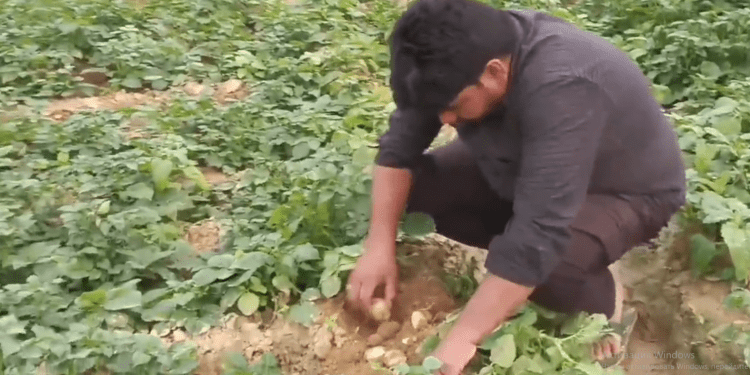Farrukhabad, known as the “potato belt”, has long been a region where farmers invest heavily in the crop, often without reaping adequate returns due to the poor quality of the seeds. However, there is good news on the horizon for these farmers. New high quality potato seeds are now available, developed using advanced technologies such as tissue culture and aeroponics. These seeds promise incredible yields and are resistant to common diseases, resulting in a more reliable and profitable harvest.
Dr. Rahul Pal, an agricultural scientist from Farrukhabad, spearheaded the development of these seeds at a polyhouse at Shringirampur in Kamalganj. Using tissue culture and aeroponic techniques, Dr. Pal successfully produced disease-free and high-yielding potato seeds. As a result, farmers not only from Uttar Pradesh but all over India are now purchasing these excellent seeds.
For optimal potato growing, climate plays a decisive role. The ideal sowing temperature is between 15 and 30 degrees Celsius. Potatoes thrive when given sufficient moisture and sunlight, which is critical to their growth as a tuber crop.
Farmers in Farrukhabad can now access 28 advanced potato varieties including Kufri Mohan, Kufri Uday, Chipsona, Kufri Kiran, Kufri Lohit, Kufri Manik and Hayati. These varieties are not only high-yielding but also adaptable to different agricultural needs and market demands.
Potato growing involves preparing level fields, applying organic fertilizers and using machinery to sow seeds. Timely irrigation and weed control are necessary until the crop is ripe, after which the potatoes are harvested and stored in cold storage before being marketed.
The introduction of these high quality, disease resistant potato seeds is set to change potato farming in Farrukhabad. Farmers can expect increased yields and profitability, providing a brighter future for the region’s agricultural community.







